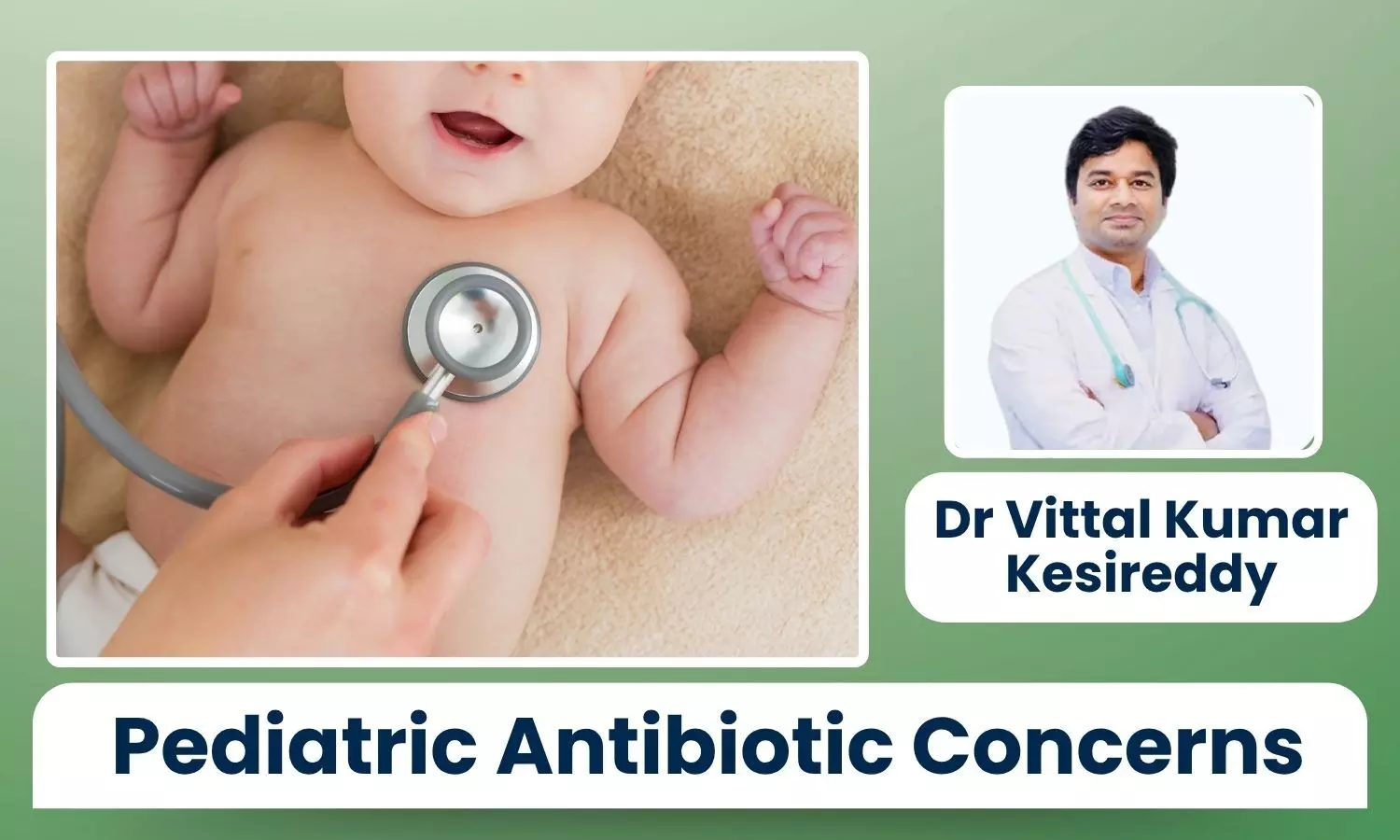Hidden Dangers of Antibiotic Overuse in Children: What Parents Need to Know - Dr Vittal Kumar Kesireddy

Every parent knows the anxiety of watching a child fall sick — a sudden high fever, a cough that lingers, or a sore throat that robs them of sleep. In those moments, it is natural to want the quickest and surest solution.
For many, that solution is assumed to be antibiotics. They carry a reputation for being strong, almost magical medicines that can bring relief overnight.
But the reality is more complex. Antibiotics are indeed lifesaving when used at the right time and for the right reason. At the same time, using them too often — or when they are not needed — carries risks that parents don’t always see immediately.
As a paediatrician, I often meet families who are surprised to learn that antibiotics are not always the answer, and in some cases, they may even cause more harm than good.
Why are antibiotics not for everything?
Most everyday illnesses in children — the seasonal cold, the flu, or a viral sore throat — are not caused by bacteria but by viruses. Antibiotics do not affect viruses. Giving them in such situations not only fails to speed recovery but also brings side effects like rashes, stomach upsets, or diarrhoea.
The bigger problem: resistance
The deeper danger is something called antibiotic resistance. This happens when bacteria, exposed too often to antibiotics, adapt and become stronger than the medicine meant to kill them.
Over time, infections that were once simple to treat may no longer respond. For children, who fall ill more frequently as their immune system develops, this resistance can pose serious risks.
Gut health and immunity
Another overlooked effect is on the gut. Antibiotics don’t choose sides. Along with the germs that cause illness, they also wipe out the helpful bacteria that support digestion and strengthen a child’s immunity.
When this balance is disturbed again and again, children can end up with tummy troubles, lower resistance, or even allergies as they grow.
What parents can do
The important thing to remember is that not every illness calls for medication. Many viral infections improve with rest, fluids, and supportive care. If your doctor suggests monitoring rather than prescribing antibiotics, it reflects careful judgment, not neglect. Avoid saving leftover medicines or insisting on antibiotics “just in case.”
Simple daily habits go a long way in prevention: regular handwashing, vaccinations, balanced meals, proper sleep, and outdoor play all help strengthen a child’s immunity.
When antibiotics truly matter
This does not mean antibiotics should be feared or avoided altogether. When a child has conditions such as bacterial pneumonia, a urinary infection, or an ear infection, antibiotics can be lifesaving. The important part is using them properly — choosing the right medicine, in the right amount, and for the right length of time.
A shared responsibility
The responsibility rests with both doctors and parents. Preserving the effectiveness of antibiotics is a collective task. Misusing them today could mean fewer options for tomorrow’s children when they truly need treatment.
Antibiotics are powerful tools, but they were never meant for every small cough or fever. Children often get better with rest, fluids, and a little patience. When we hold back and use antibiotics only at the right time, they work better when truly needed. That choice doesn’t just help a child recover today—it also protects their health in the years ahead.
Disclaimer: The views expressed in this article are of the author and not of Health Dialogues. The Editorial/Content team of Health Dialogues has not contributed to the writing/editing/packaging of this article.


